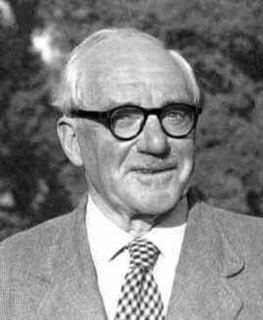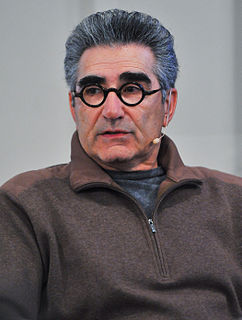A Quote by Ben Kingsley
The trick is to try and justify every word on the page and make sure my character is the man who would say that.
Related Quotes
We come finally, however, to the relation of the ideal theory to real world, or "real" probability. If he is consistent a man of the mathematical school washes his hands of applications. To someone who wants them he would say that the ideal system runs parallel to the usual theory: "If this is what you want, try it: it is not my business to justify application of the system; that can only be done by philosophizing; I am a mathematician". In practice he is apt to say: "try this; if it works that will justify it".
Reading aloud sounds like a good idea, but honestly, it doesn't work very well. Good dialogue in a book doesn't actually bear much resemblance to real-life dialogue. For example, if you've ever seen a word-for-word transcript of people talking, it doesn't read off the page very well. The trick is to make it *seem* like it's being spoken, not to make it speakable.
Every page was once a blank page, just as every word that appears on it now was not always there, but instead reflects the final result of countless large and small deliberations. All the elements of good writing depend on the writer's skill in choosing one word instead of another. And what grabs and keeps our interest has everything to do with those choices.
If there is one word that describes the meaning of character, it is the word honor. Without honor, civilization would not long exist. Without honor, there could be no dependable contracts, no lasting marriages, no trust or happiness. What does the word honor mean to you? To me, honor is summarized in this expression by the poet Tennyson, "Man's word [of honor] is God in man."
Strength, strength is what the Upanishads speak to me from every page. This is the one great thing to remember, it has been the one great lesson I have been taught in my life; strength, it says, strength, O man, be not weak. Are there no human weaknesses? - says man. There are, say the Upanishads, but will more weakness heal them, would you try to wash dirt with dirt? Will sin cure sin, weakness cure weakness? Strength, O man, strength, say the Upanishads, stand up and be strong.
For years I feared the opening of every elevator, half-convinced that from the opened doors would come a bullet, for me, shot by a man in a tan trenchcoat. I have no idea why I feared this, expected it to happen. I even knew how I would react to this bullet coming from the elevator door, what word I would say. That word was: Finally.




































